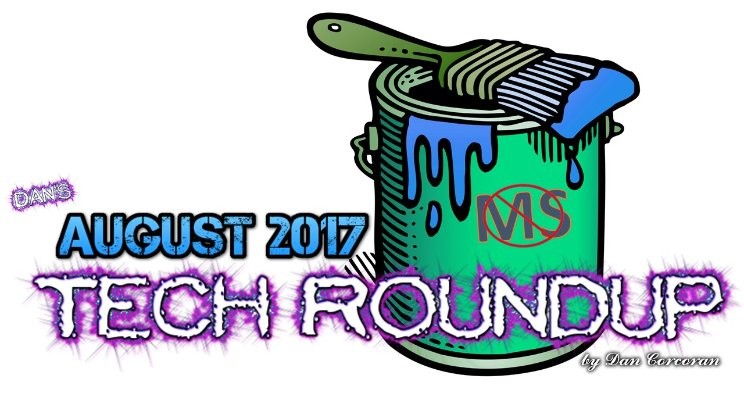This month’s Tech Roundup includes: The near demise of Microsoft Paint, GDPR, Swedish data security, Google’s latest solution to hiring people (using AI and machine learning), crowdfunded legal disputes with HMRC over IR35 rules and Facebook’s record-high share price. As always, I have added hyperlinks to take you to the original source articles.
July will forever be remembered as the month that Microsoft Paint nearly ran out of virtual ink. On the 24th July 2017, Microsoft announced that it was to “can” its paint program from forthcoming Windows 10 updates and instead provide a fresh lick of paint with its new 3D paint application. However, following an “incredible outpouring of support and nostalgia”, Microsoft made a complete U-turn and announced just a day later that the much-loved MS paint will be freely available to download from the Windows Store.
The GDPR frenzy continued to steal the headlines last month, one poll even reported that as few as 19% of UK CIOs (out of 400 worldwide) said that they have “comprehensive plans in place” despite the looming deadline for compliancy and hefty financial penalties for failure to comply. It does beckon the question of how authorities will effectively police the new rules.
According to Swedish news site “The Local”, the Swedish Transport Agency put national security at risk, when it outsourced databases to cloud providers without undertaking the required security checks. This meant that IBM Administrators in the Czech Republic and staff at a maintenance company in Serbia, had access to the database, which holds sensitive information about all of the vehicles in Sweden. This includes details about Police and military vehicles. I wonder how many Swedes will now be receiving calls about “an accident that recently took place”….
In efforts to expand and dominate in new markets, Google seems to be taking on Linkedin in the talent management space. Google Hire is now available to US customers of Google’s Gsuite. This solution harnesses the power of machine learning to help companies recruit new talent. Computer Weekly reports that: “The underlying technology is an API called Google Cloud Jobs, which Google claims uses Artifical Intelligence to present more relevant job searches than is normally possible”. There is no denying that job searching is painful. If this really works, it could give Google a strong competitive advantage.
Facebook has cause for celebration with expected advertising revenue of $36.29bn in 2017. Share prices reached an all time high following a strong performance for the first half of the year. This was mainly attributed to its mobile advertising revenue which investors favour as a key indicator of success. Personally, I think it should be split up into friendbook and familybook, although, looking at these latest figures, Mark Zuckerberg seems to be doing just fine without my wise counsel.


Recent Comments